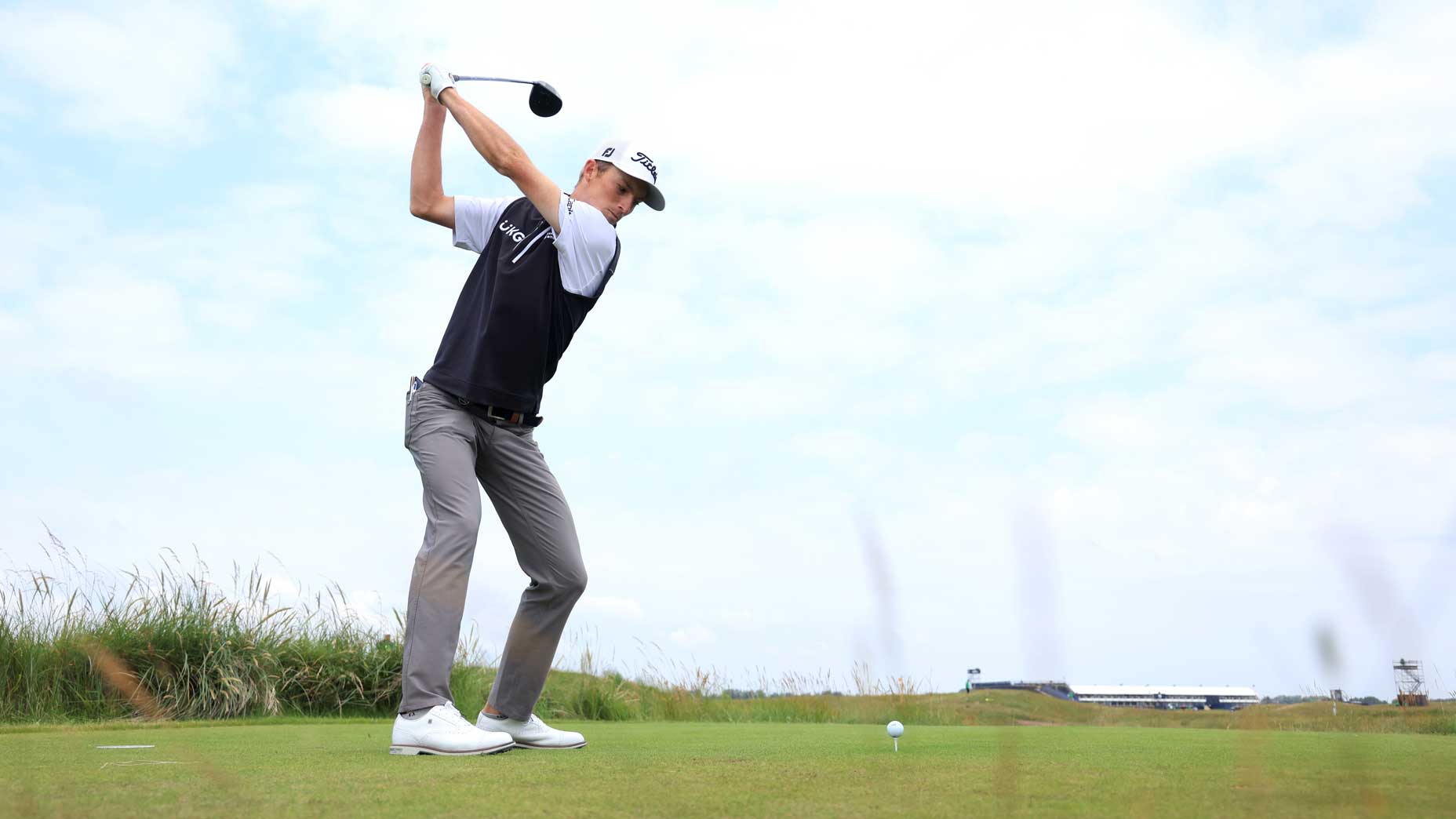ATLANTA – It’s always complicated when it comes to Bryson DeChambeau, but this is next level.
Forget the mathematician who is trying to reimagine the game with an outrageous brand of power golf. That, at least by comparison, is simple stuff.
For PGA Tour commissioner Jay Monahan this condenses into a single question – what can be done?
What can be done to stem the tide of torment that’s being heaped on DeChambeau from select corners of the zealous masses? What can be done to bring the polite back to Tour patrons?
Not much, is the honest answer.
Monahan touched on all the talking points on Tuesday at the Tour Championship where his annual press conference was dominated by DeChambeau and his ongoing divide with some fans.
The rift seemed to reach a concerning boiling point Sunday at the BMW Championship when a fan hit DeChambeau in the metaphorical mouth with a chant of “Great job, Brooksie!” after DeChambeau lost a six-hole playoff. According to various reports DeChambeau hissed at security officials to have the fan escorted off property.
Full-field tee times from the Tour Championship
The “Brooksie” chants began in earnest at the Memorial earlier this summer when DeChambeau got sideways with Brooks Koepka on social media and despite Bryson’s best efforts, the hate has only grown. Asked specifically if “Brooksie” qualifies as “harassing behavior,” the commissioner was clear.
“Yes, and the reason I say yes is the barometer that we are all using is the word ‘respect,’ and to me, when you hear ‘Brooksie’ yelled or you hear any expression yelled, the question is, is that respectful or disrespectful?” Monahan said. “That has been going on for an extended period of time. To me, at this point, it’s disrespectful, and that’s the kind of behavior that we’re not going to tolerate going forward.”
Tough line, huh?
Maybe not. The commissioner went on to explain that the Tour was already looking into its fan behavior guidelines before the pandemic shelved that project in 2020, but Monahan said the circuit will circle back around to the notion that there are limits to how much fun will be tolerated.
“We have to be intentional about our expectations for fan behavior and I believe our fan code of conduct does that,” Monahan said. “Comments or gestures that undermine the inclusive and welcoming nature of the game will not be tolerated, nor will any harassment of players, caddies, volunteers, officials, staff, or other spectators.”
In other words, be nice. It’s a commendable outlook and one that, for all the sad reasons you can count, doesn’t sit well in modern sports.
There is no small amount of empathy for DeChambeau and what he’s obviously dealing with. During a summer of mental health awakening among top athletes, it’s encouraging to envision Bryson taking a few “mental health” months after the Ryder Cup to clear his complicated head.
None of that changes the reality that fans are going to be mean and, if we’re being honest, if calling one player another player’s name reaches the threshold of harassing behavior perhaps golf is, again, taking itself too seriously.
Monahan could send an army of marshals to pluck the unruly from the crowd for daring to bark, “Brooksie,” but good luck. Having seen firsthand how such a slight can grow collectively at Muirfield Village, a zero-tolerance policy would quickly escalate from a behavior problem to a logistic issue with fans being escorted off property in droves.
And how far is Monahan willing to go for one player?
DeChambeau is hardly the first Tour frat brother to be heckled, but he is the first to find himself on a slippery slope to unwitting antagonist.
Jon Rahm has heard all manner of ill will directed at him from the gallery in his young career. He explained on Tuesday that fans have said nasty things about his mother, his wife and simply “some bad things.” He also realizes it will likely be even worse at this fall’s Ryder Cup and that, sadly, it’s all part of being a professional.
“We’re not the only ones that deal with it,” Rahm said. “Every other athlete in every other sport has to deal with it. In team sports, every time you have an away game, you have a whole stadium full of people yelling things at you. I’m sure other sports have heard way worse things than I have on the golf course.”
Stewart Cink has played with both DeChambeau and Patrick Reed, who endures his own share of slings and arrows from the masses, and has seen the ugly face of modern sports up close and far too personal.
“It’s a little different hearing the two personalities of the fan group with those two guys, but I did hear some pretty astonishing things when I played with Patrick, and I love playing with Patrick Reed,” Cink said. “He and I just laugh about it when we hear it and I can’t believe that there hasn’t been a murder yet in the crowd.”
It’s clear that Monahan is taking crowd behavior seriously, but to what end? If taunting in the form of calling someone the wrong name is where we’re drawing the line, what of Phil Mickelson’s social media fun with Keith Mitchell earlier this month?
During a Tuesday money game at The Northern Trust Mickelson referred to Mitchell in numerous tweets as a Keith/Kevin, an intentionally cutting reference to a television announcer who accidentally called him “Kevin Mitchell” during a Tour broadcast. Was Lefty’s social media shot good-natured fun or “harassing behavior?”
In Monahan’s world it would be a very thin line between each incident and a very dangerous precedent for a sport that once again finds itself at a mainstream crossroads.









